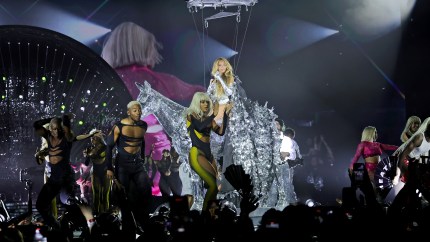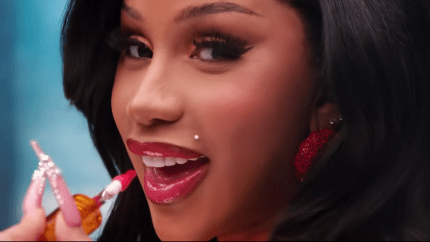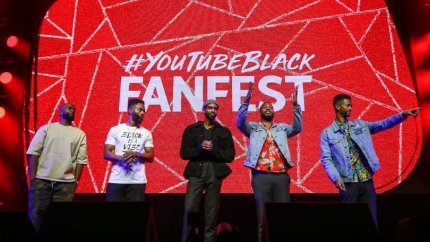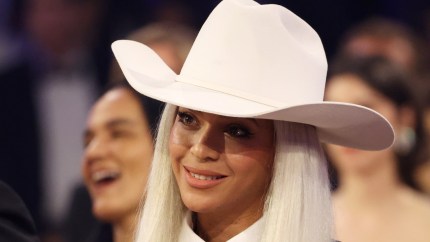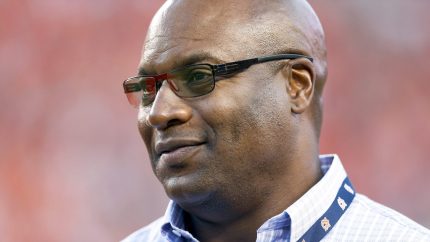Cetaphil’s Super Bowl ad is a reminder that Black content creators are the blueprint
OPINION: The agency behind Cetaphil’s ad claims it had not seen the videos by a Black TikTok creator, but we all know that Black content on social media is always mined for use by those with bigger platforms.
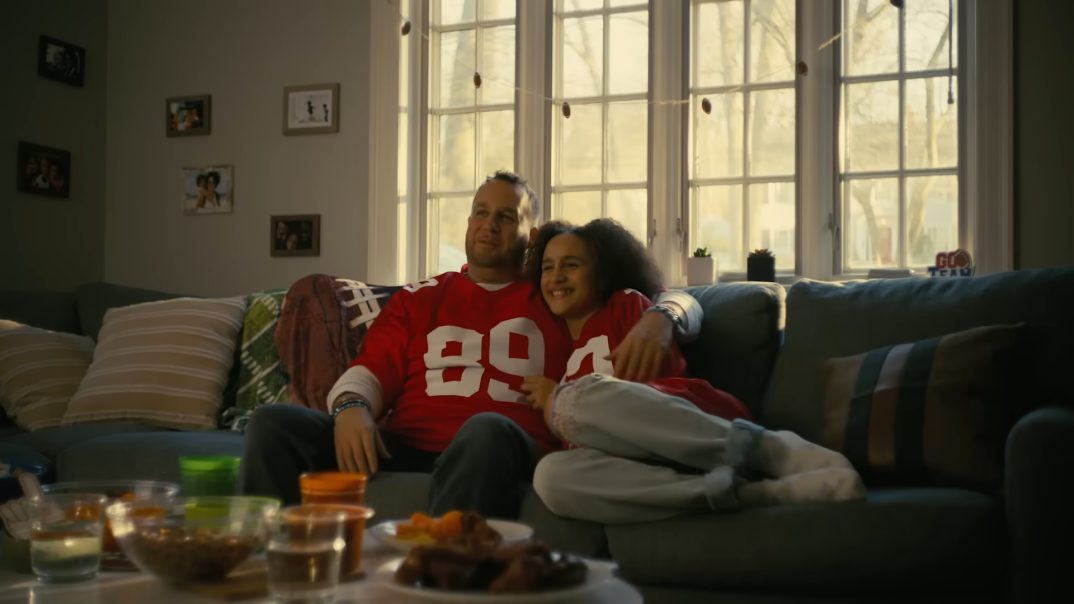
Editor’s note: The following article is an op-ed, and the views expressed are the author’s own. Read more opinions on theGrio.
Being a Black content creator in these social media streets is a hard row to hoe.
There are so many opposing forces that can disrupt the success of Black content creators, and those opposing forces include everything from algorithms that seemingly favor the content of non-Black creators; non-Black creators co-opting the content of Black creators and going viral for it while the original Black creator languishes in obscurity; harassment and bullying from trolls who don’t like to see Black creators win; and those in power who amplify the content thieves and not the original Black content creators because, as I’ve said time and time again, Blackness is only profitable when it is being commodified by non-Black people.
I was reminded of this again this weekend when this whole Cetaphil Super Bowl ad thing came up.
In case you missed it, skincare brand Cetaphil released an ad campaign this weekend that features a white father and his biracial (Black and white) daughter bonding over football. Included are scenes of the daughter doing her skincare routine as her father comes in and talks to her. At one point, he comes in to give her a football jersey, and he dabs some of her face cream on his face. The spot ends with them sitting on the couch together watching football.
The ad itself is playing into the hype that has been generated since pop singer Taylor Swift began dating Kansas City Chiefs tight end Travis Kelce. As Swift has become something of a regular fixture at Chiefs games to cheer her boyfriend on, her fans – known as “Swifties” – are said to be tuning in to football now as well.
The ad is basically saying now fathers and their daughters can bond over football together, and it all sounds so cute and sweet, right?
Except, the entire storyline of the ad itself appears alarmingly similar to a series of videos that were created last fall by a Black creator on TikTok named Sharon Mbabazi.
In a video that has now been deleted, Sharon accused Cetaphil of getting the idea for its ad directly from the content she had created with her white stepfather.
As noted by AdWeek, Mbabazi said the similarities between her videos and the Cetaphil ad included:
- Mbabazi is Black and her stepdad is white, while the teen girl in the Cetaphil ad is mixed race and her dad is white.
- Mbabazi sits at her vanity doing her makeup when her dad comes in to give her football updates, while the girl in the ad is also at her vanity applying moisturizer when her dad walks in to gift her a Kelce jersey.
- The kicker, for Mbabazi, is when the dad in the ad puts lotion under his eyes similar to the under-eye masks that Mbabazi’s stepdad donned for her content.
“Y’all could’ve at least given us credit,” she said in her video.
In a separate video, her stepfather told the company, “That is a beautiful story that you have in your commercial that’s going to be on the Super Bowl, but it’s our story,” adding, “My daughter made the content that you stole.”
Cetaphil received a lot of praise for the commercial in the comments of its TikTok post where they shared it, but the brand also received a lot of backlash from people who took it to task for what appeared to be stealing content from a Black creator, and I’m here to let y’all know that the company was fighting for its life in those comments.
Cetaphil posted the following comment over and over again Sunday in response to people tagging Sharon Mbabazi and demanding the company give her credit for her work:
“We love Sharon Mbabazi’s work too! We had a great chat with her & her stepdad earlier today to tell her how much we’ve loved discovering her work since this commercial went live.”
According to AdAge, the company also noted, “We absolutely love that this beautiful and universal story between dads and daughter connecting over football is something so many others loved.”
Craig Elimeliah, the chief creative officer of Prompt, the ad agency that worked with Cetaphil to come up with the campaign, insists the ad is not based on Mbabazi and her stepfather and that the father and daughter shown in the ad are a real-life father/daughter duo. Like Cetaphil, Elimeliah contends that any similarities between the ad and Mbabazi’s content are purely coincidental.
But I mean, they kinda have to say that, don’t they?
I’m willing to give Cetaphil the benefit of the doubt in that maybe they had not seen Mbabazi’s content, but I find it much harder to swallow that some person working at Prompt wasn’t inspired by those TikTok videos.
Maybe they thought no one would notice. Maybe they thought it wouldn’t be that big of a deal even if someone did notice because who is going to take the side of some random Black girl against a big corporation?
Recommended Stories
Whatever happened behind the scenes over there, there’s the story they are telling the public and the story that is unfolding in those offices where, if I had to guess, someone is in very big trouble, and we just aren’t hearing about it.
Because Mbabazi posted a follow-up video on Sunday indicating she had spoken with Cetaphil, and the company was trying to make things right.
This was corroborated by Elimeliah, who in addition to telling AdAge that no one at his company ever saw the footage from Mbabazi’s videos, confirmed that Mbabazi and her stepfather would be appearing in a follow-up spot.
Now why couldn’t they have just collaborated with her in the first place? Wouldn’t that have been better than all of this? Because now their sweet little ad is tainted with the knowledge that somebody somewhere may have tried to be slick and steal from a Black creator, and a large corporation got called out for it, and now that’s all anyone is going to remember from this ad – and not the feel-good moment the ad was supposed to make all of us have.
I’ve said it before, and I’ll say it again as many times as it takes: They want our rhythm, but not our blues.
Think about 2021 when Jimmy Fallon decided he wanted to highlight some of the viral dances going around TikTok, and instead of inviting the original creators of the dances — most of whom were Black — he brought on white girl Addison Rae and had her perform the dances instead. It wasn’t until he faced a ton of b(l)acklash and got repeatedly roasted for it that he decided to make amends by having the actual creators come on his show to talk about their viral dances.
And while it was nice of Jimmy to try and make it right, I am still wondering why he didn’t fly the creators out to be on his stage the way he did Addison Rae.
Jimmy didn’t really acknowledge how wrong he was for not having the Black creators on his show in the first place; he just made it seem like he realized they should get some shine “too,” and it’s not the same thing.
In the Cetaphil situation, neither Cetaphil nor the ad agency admitted any wrongdoing even though it is glaringly apparent that someone saw Mbabazi’s content before that ad was created.
I’m glad to see Sharon and her stepdad getting the credit and the flowers they deserve for what was truly original and endearing content.
We know, however, that this won’t be the last time a Black creator is stolen from.

Monique Judge is a storyteller, content creator and writer living in Los Angeles. She is a word nerd who is a fan of the Oxford comma, spends way too much time on Twitter, and has more graphic t-shirts than you. Follow her on Twitter @thejournalista or check her out at moniquejudge.com.
Editor’s note: The following article is an op-ed, and the views expressed are the author’s own. Read more opinions on theGrio.

